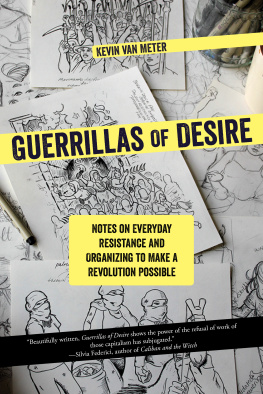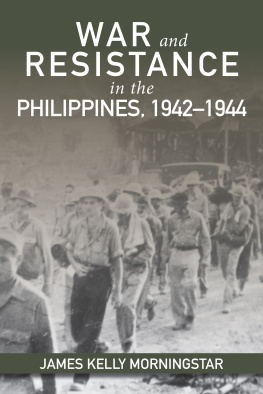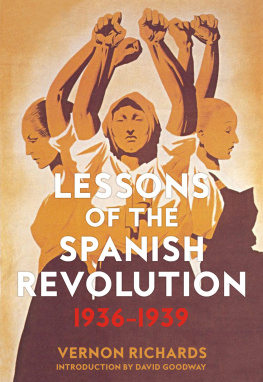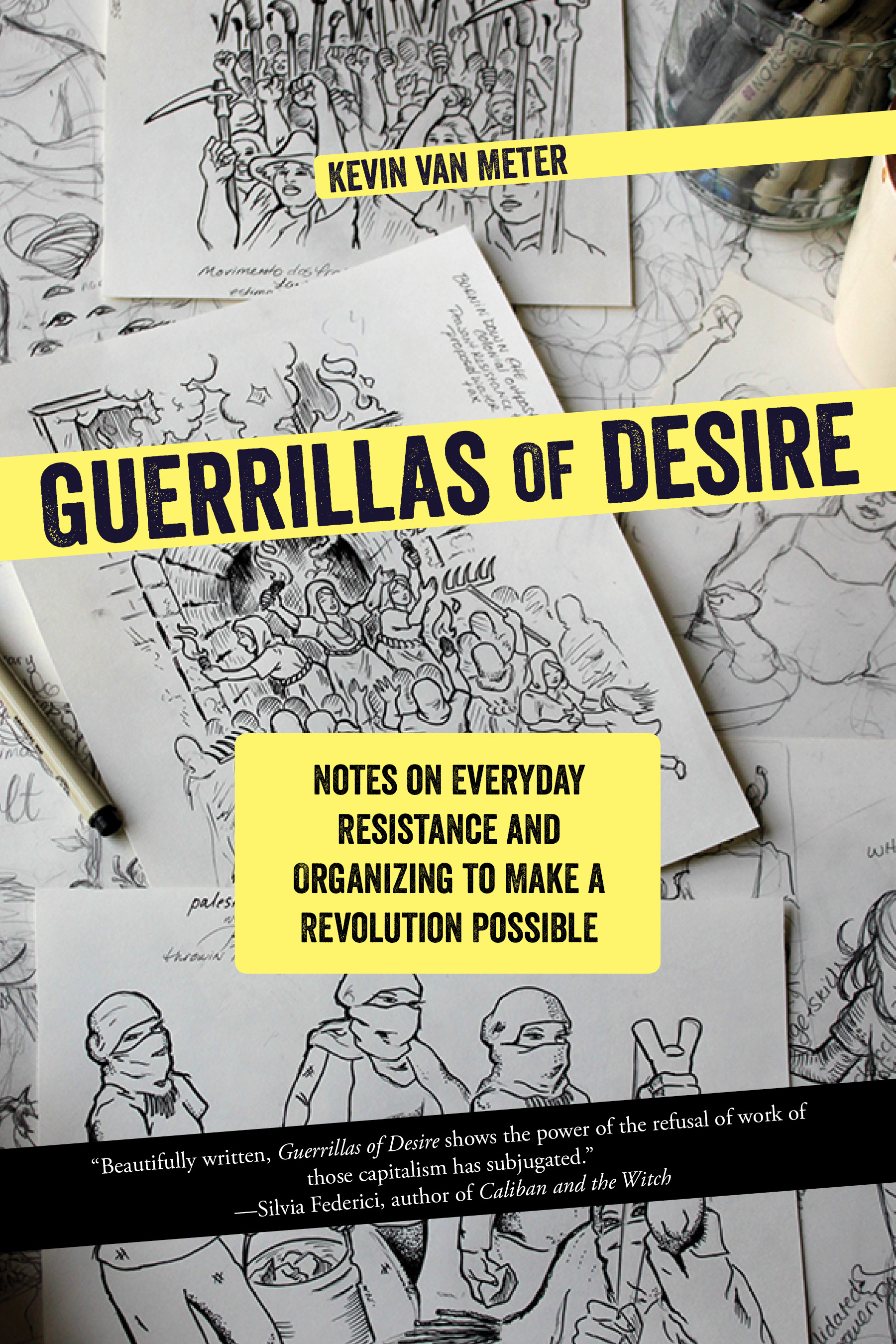To all those who inhabit the small, nearly imperceptible moments. For it is their collectivized refusals, transgressions, everyday resistances, inquiries, creative expressions, and desires that will create a new world, one in which many worlds fit.
PREFACE
Although the reader encounters a preface first, it is often the last section to be written. I suspect this is for practical reasons rather than reflective or philosophical ones. Since the author must wait until the book is nearly finished to sum up the writing, provide an overview of intent, and recognize those who have helped produced it, such a document is written as deadlines approach. Or, as in this case, just after it has passed.
Nevertheless, I have always respected the beasts that haunt the writing process and the methods of the author. In moments when I need to be reminded why I write, I turn to George Orwells essay by the same title. In Why I Write Orwell offered, Writing a book is a horrible, exhausting struggle, like a long bout of some painful illness, a sentiment with which I concur. He continues, One would never undertake such a thing if one were not driven on by some demon whom one can neither resist nor understand. This book is the result of a long process of exorcism, in which endless voices and demons have rattled my resolve and reverberated in my thoughts, and I feel a great responsibility to their words. It will be up to the reader to determine if I understood them at all.
Two illnesses have marked this work. The first, hypothyroidism, was diagnosed recently and hampered the completion of the book, which was written predominately during the 201516 school year, when I was on medical leave. The second, onset during my early days as a radical and organizer in the late 1990s, was a nagging cough that began every time I heard a fellow radical, organizer, or activist speak about what is to be donea question almost always followed by suggestions as to what others should be doing. Instead I wanted to ask How do people become what they are? How do they become radicalized, become revolutionary, become other than what they were made by this society to be? It seemed to me then, as it does now, that we need to understand how revolutionaries emerge before we ask what is to be done with them. Or better still: what are we to do together?
These are not questions I have asked alone. Every piece of writing is a collective endeavor, and this book is certainly no exception. Conor Cash along with Craig Hughes and Stevie Peace Larson of the Team Colors Collective have been constant intellectual companions. Among the four of us, notions such as the refusal of work, contours of class struggle, methods of survival, and the role of everyday resistance have been debated feverishly. I have turned to Benjamin Holtzman periodically over the years to regain composure and focus, and he has always been considerate while setting me right, as have Andrew Cornell and Chris Dixon, new social movement historians who not only provided comradely challenges to my ideas but also suggested ways of improving upon them. Thomas Buechele, quoted in the introduction, provided me with the Stanley Aronowitz line from which I acquired the books title. Charles Overbeck (of Eberhardt Press), Joseph Keady, Bryan Winston, scott crow, Alexander Reid Ross, Shane Burley, Brian Howard, Aaron Mallory, Vince Collura, Geoff Boyce, Sarah Launius, Alexandra Bradbury, Eric Laursen, Jack Bratich, and Spencer Sunshine provided feedback and recommended sources.
Additional recognition must go to Silvia Federici and George Caffentzis, as their mentorship and scholarship mark nearly every page of the text that follows. As well, Bruce Braun, Cesare Casarino, Vinay Gidwani, and George Henderson at the University of Minnesota, David N. Pellow at the University of California, Santa Barbara, Mark Blasius (who served as my official advisor for an earlier version of the text) and Forrest Colburn at the Graduate Center, City University of New York, and Conrad Herold of Hofstra University, served as guides and midwives to my intellectual development.
In April 2008, having just arrived in Portland, Oregon, I had a chance meeting with a fellow who was already known for clear writing and stoic positions, Kristian Williams. Nearly every week thereafter, Kristian and I have met to review our writing, read Orwell, rediscover the history of anarchism, and attempt to grapple with the current challenges facing revolutionary movements in the United States. Both in our friendship and in his official capacity with the Institute for Anarchist Studies, which has copublished this book with AK Press, Kristian has suffered as my editor of record. My tendency to be wordy or overemphasize secondary topics would have caused anyone difficulty, but he also had to coach me as I learned to write again after three years of academic writing in graduate school.
For the past twenty years, the Institute for Anarchist Studies has supported anarchist and radical scholarship across the planet. And the faith that Paul Messersmith-Glavin, Lara Messersmith-Glavin, Harjit Singh Gill, Sarah Coffey, and other board members had in me has been remarkable. Throughout the writing and publishing process Charles Weigl, Zach Blue, and the entire AK Press collective acted as publishers and understanding colleagues.
In February 2017, friends and colleagues met to discuss and critique the book during a dinner party. Individuals involved included Brandon Feld, Emily Tsing, Luis Brennan, Amelia Cates, Craig Florence (of Mother Foucaults Bookshop), Kira Smith, and others already mentioned. Furthermore, organizers in Portland, Oregon, with the Portland Solidarity Network, the Black Rose Federation, Industrial Workers of the World, Anarchist Black Cross, Incarcerated Workers Organizing Committee, Transformative Lenses Collective, and neighboring initiatives, were kind enough to share their thoughts with me shortly thereafter. In this regard, I want to thank Ayme Ueda, Casey Enns, Grace Covill-Grennan, Gibson Thorn, and Stephen Quirke for their comradeship.
Additionally, those with whom I have organized have afforded me the opportunity to field-test these ideas on making a revolution possible. Over the years, comrades in the Modern Times Collective, Long Island Freespace, Portland Solidarity Network, and other organizations have taught me in innumerable ways. I hope this book in some small way repays the cost of their lessons.
Before I knew that I was a revolutionary, a writer, or a scholar, Robert Lepley saw my potential as an organizer. It was only under his tutelage that any latent abilities emerged.
Thus far I have had the opportunity to live among friends in suburban Long Island, rural Vermont, Brooklyn, Tucson, Portland, and Minneapolis. Without the support of loved ones in these places I have called homeespecially Abbey Friedman, Elizabeth Young, Stephen Coln, Phil Rutkowski, Sarah Hughes, and my family, but including many, many othersI would never would have overcome my illnesses and confronted the demons that drove me to produce Guerrillas of Desire .













